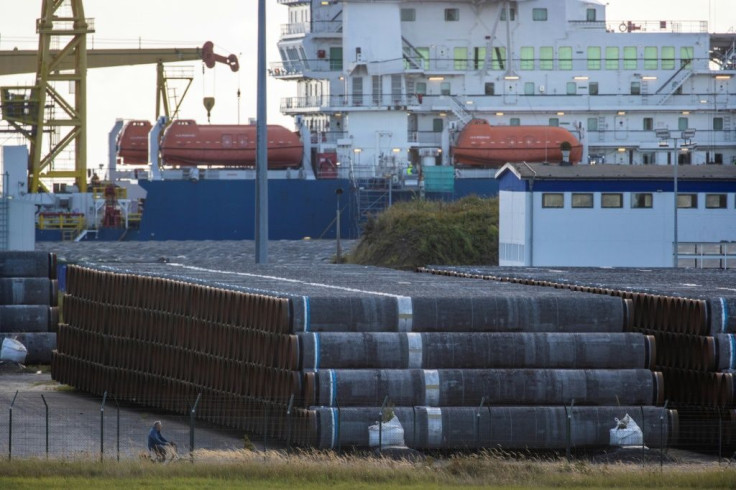Is Navalny's Poisoning A Fatal Blow For Nord Stream 2?
The alleged poisoning of Kremlin critic Alexei Navalny may be the final nail in the coffin of the controversial Nord Stream 2 gas pipeline between Russia and Europe through the Baltic Sea.
Germany, the pipeline's main supporter in Europe, now won't rule out withdrawing its support for the 10 billion euro ($11.7 billion) project if Moscow fails to thoroughly investigate the alleged weapons-grade nerve agent attack on Navalny.
The gas pipeline, initially scheduled to come into service in early 2020, would double the capacity of its predecessor Nord Stream 1, which has been fully operational since 2012.
They aim to be more secure than other pipelines travelling through Ukraine, which have been disrupted several times due to the ongoing conflict between Moscow and Kiev.
The project involves Russian giant Gazprom, which has a majority stake, and an international consortium including France's Engie, Germany's Uniper and Wintershall, Austria's OMV and the Anglo-Dutch oil major Shell.
Poland, the Baltic states and Ukraine have a dim view of it. They fear that Moscow could use dependence on Russian gas to apply political pressure on Europe.
They have also criticised sacrificing the interests of Ukraine, which derives significant income from the transport of Russian gas.
The announcement of Nord Stream 2 in 2015 was made at a "very sensitive" time politically, a year after the annexation of Crimea from Ukraine by Russia, foreign policy analyst Kirsten Westphal said. The pipeline will "bypass or at least reduce transit through Ukraine," she said.
The gas pipeline project is economically and geopolitically damaging to the eastern European nation, the very country that the EU claims to support in its conflict with Russia, the German daily FAZ wrote on Monday.
The government's support for the pipeline was "a mistake from the start", it said.

The project has also run into opposition from environmental activists who are against gas-related infrastructure, and from EU regulation on gas transport, which calls for splitting production and distribution activities.
EU member Denmark only gave the project the greenlight to cross its waters in October 2019.
US President Donald Trump said in 2018 that Germany was "a captive to Russia" because of Nord Stream 2 and demanded that the project be abandoned.
And although the pipeline's 1,230 kilometres are almost complete, the project has been at a standstill for months because of the threat of US sanctions against the companies involved.
But the US has other reasons to be opposed. It is a major producer of natural gas, and recently launched an offensive in search of new commercial opportunities, including in Europe.
German chancellor Angela Merkel announced the abandoning of nuclear power in 2011 in the wake of the Fukushima disaster in Japan and the country has begun to move away from coal, which is highly polluting. Gas is seen as a good compromise.
In 2019, gas accounted for 25 percent of Germany's total energy consumption, and Russian gas is particularly cheap.
Germany also is concerned about the heavy financial cost of abandoning the project.
"I hope that Russia will not force us to change our position on Nord Stream 2. And those who ask for that must be aware of the consequences," Foreign Minister Heiko Maas told Bild, Germany's top-selling newspaper, on Sunday.
"More than 100 companies from 12 European countries are participating in Nord Stream 2, more than half of them are German," he warned.
© Copyright AFP {{Year}}. All rights reserved.



















